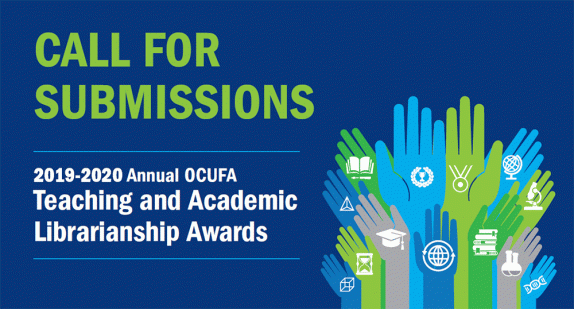The Ontario Confederation of University Faculty Associations stands in solidarity with the families, friends, communities, and activists in Canada and the United States who are demonstrating against the deaths of Regis Korchinski-Paquet, George Floyd, Breonna Taylor, Tony McDade, Ahmaud Arbery, and all the other Black lives that have been lost because of anti-Black racism and police violence.
Although the murder of George Floyd by Minneapolis police was the catalyst for recent demonstrations in cities around the world, systemic anti-Black racism and police brutality are not isolated to the United States. In Canada, they recently manifested in the needless death of Regis Korchinski-Paquet during a confrontation with Toronto police. Systemic and institutionalized anti-Black racism has a long history in Canada, as does a colonialist culture rooted in white supremacy. The same process of ongoing colonization has resulted in the deaths of thousands of Indigenous Peoples since first contact, and recently, with the death of Chantel Moore at the hands of police.
As educators and researchers, we play an important role working against institutional anti-Black racism in our communities, on campus, and in our classrooms. Systemic anti-Black racism shows up in the underrepresentation of Black faculty, librarians, staff, and administrators in our universities, the devaluing of non-colonial ways of knowing and research, the absence of the histories and voices of Black communities in curricula, the policing and profiling of Black students on campus, and the barriers many Black students face attaining a postsecondary education, particularly those from lower socio-economic backgrounds. It is also evident through the overrepresentation of Black faculty as precariously employed members of our institutions who have no voice in hiring or collegial governance processes.
Universities and university faculty are not immune from systemic racism and universities often play a role in perpetuating and consolidating systems of exclusion. OCUFA recognizes that Ontario’s universities are colonial projects, deeply rooted in anti-Blackness, and we are committed to the work of building universities free of anti-Black racism and other forms of oppression.
OCUFA calls on postsecondary institutions to collect and release race-based data for faculty complements and students; to fully commit to the principles of employment equity beginning by hiring more Black faculty into tenure-stream positions; to review and eliminate organizational structures and policies that prevent the advancement of Black students and scholars; and to re-evaluate agreements with local police departments and on-campus security services.
We call on Ontario municipalities and local and provincial governments to undertake a full review of police budgets and services and reallocate resources away from the militarization of police toward the development of alternative community-based services in full consultation with the Black community groups.
We join Black advocacy groups in their call for the Ontario Attorney General to create a fully public and independent investigation into the death of Regis Korchinski-Paquet.
We call on the Ontario government to invest in a fully-funded postsecondary system that removes the current barriers to access faced by many Black students, particularly those from lower socio-economic backgrounds.
We call on the Ontario government to legally mandate effective systems of accountability and oversight of police in Ontario. Such oversight bodies must be representative of the communities most likely to be victims of police violence.
We renew our commitment to fighting against anti-Black racism in our faculty associations, on our campuses, and in our communities. We acknowledge the underrepresentation of Black academics in OCUFA’s own leadership and commit to improving the diversity of our own organization.
We commit to promoting Black faculty into leadership positions within OCUFA and collaborating with Black scholars to eliminate barriers to employment equity within their institutions.
We encourage all faculty associations and individual members to reach out to and offer support and solidarity to Black colleagues, listen to calls from Black advocacy and community groups, take part in community actions where they can do so safely, and consider donating to Black advocacy and action groups, legal action organizations, and protester bailout funds.
Organizations to donate to:
The following list includes resources shared in an article by HuffPost and over social media in recent days and is by no means exhaustive. We also encourage members to research organizations to support in your own communities.
Ontario specific organizations
- Black Legal Action Centre: a non-profit community legal clinic that provides free legal services for low or no income Black residents of Ontario.
- Black Lives Matter – Toronto: the Toronto branch of the Black Lives Matter movement.
- Black Liberation Collective: international student-led collectives dedicated to creating infrastructure for Black students around the globe to build power, using an intersectional lens, in order to make campuses safe for all Black students.
- Black Health Alliance: a community-led charity working to improve the health and well-being of Black communities in Canada.
- Black Women In Motion: a youth-led organization that empowers and supports the advancement of black womxn and survivors of sexual violence.
- Black Youth Helpline: a national helpline established to promote access to professional, culturally appropriate support for youth, families, and schools.
- Caribbean African Canadian Social Services: is a Social Services Agency dedicated to supporting individuals, families, and youth to reach their full potential.
- Food Share Toronto: is partnering with @notanotherblacklife to deliver GoodFood Boxes to Black families who are self-isolating after the Justice for Regis March
- Nia Centre for the Arts: supports artists working across disciplines to build creative capacity and support the development of a healthy identity in Black youth.
- Toronto Black Film Festival: an annual festival whose ambition is to encourage the development of the independent film industry and promote more films on the reality of Black people from around the globe.
Canadian equity and anti-racism organizations
Ways to support demonstrators in America
Financial support for Regis Korchinski-Paquet










